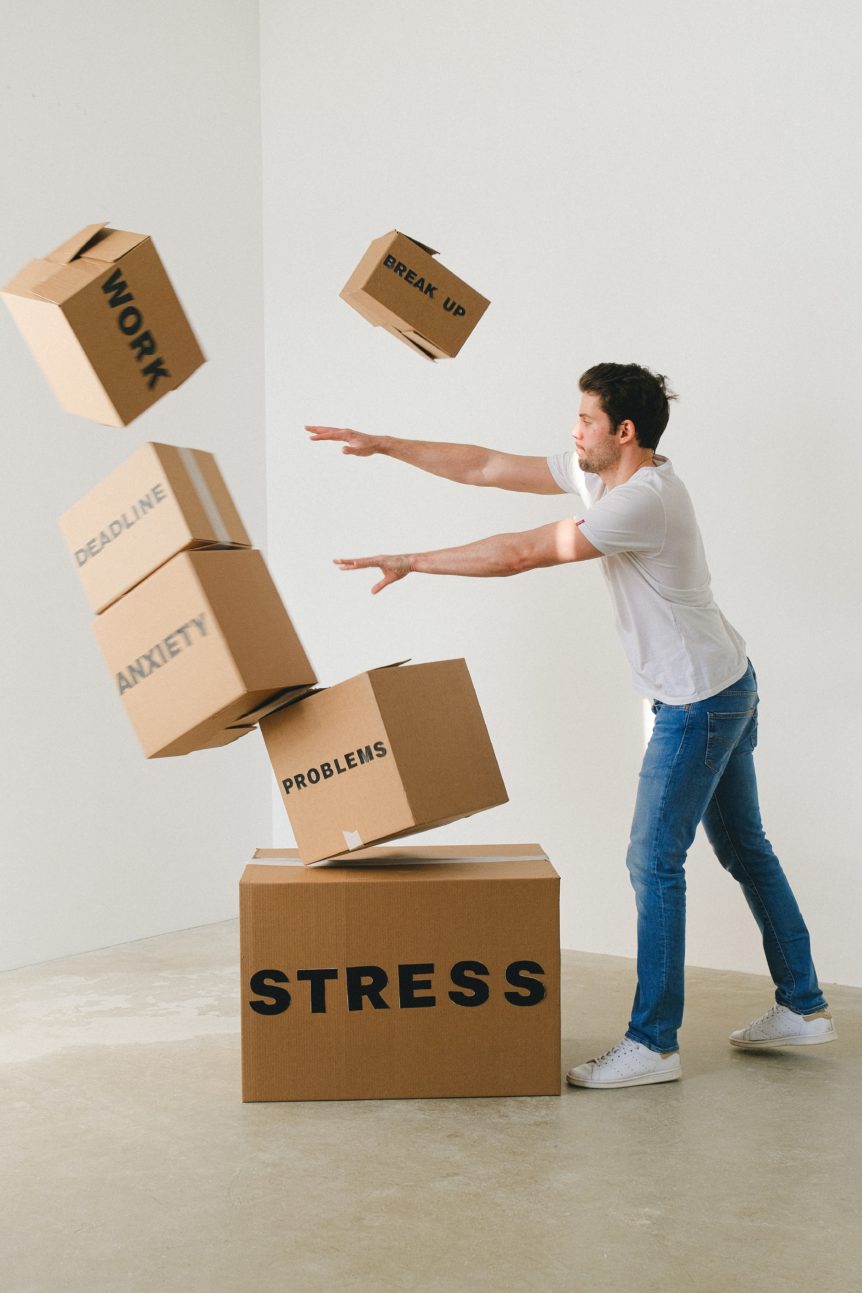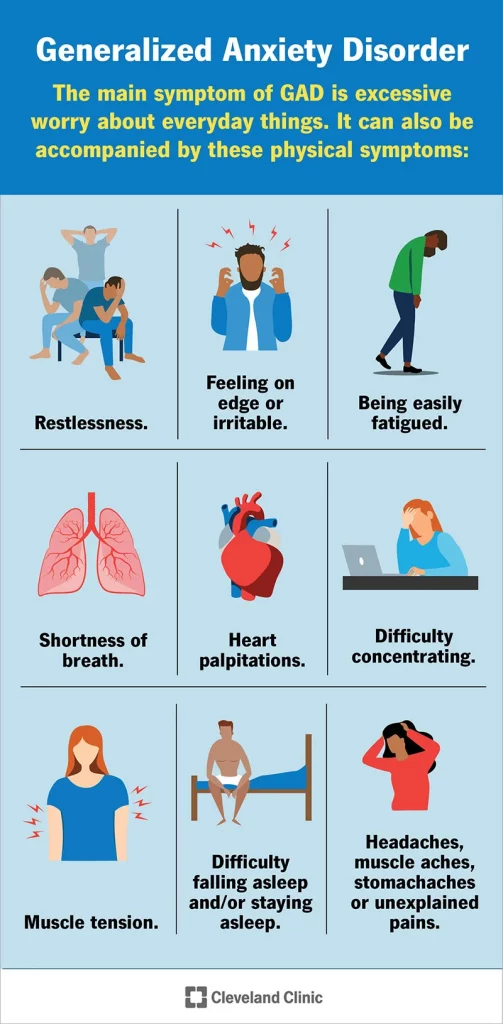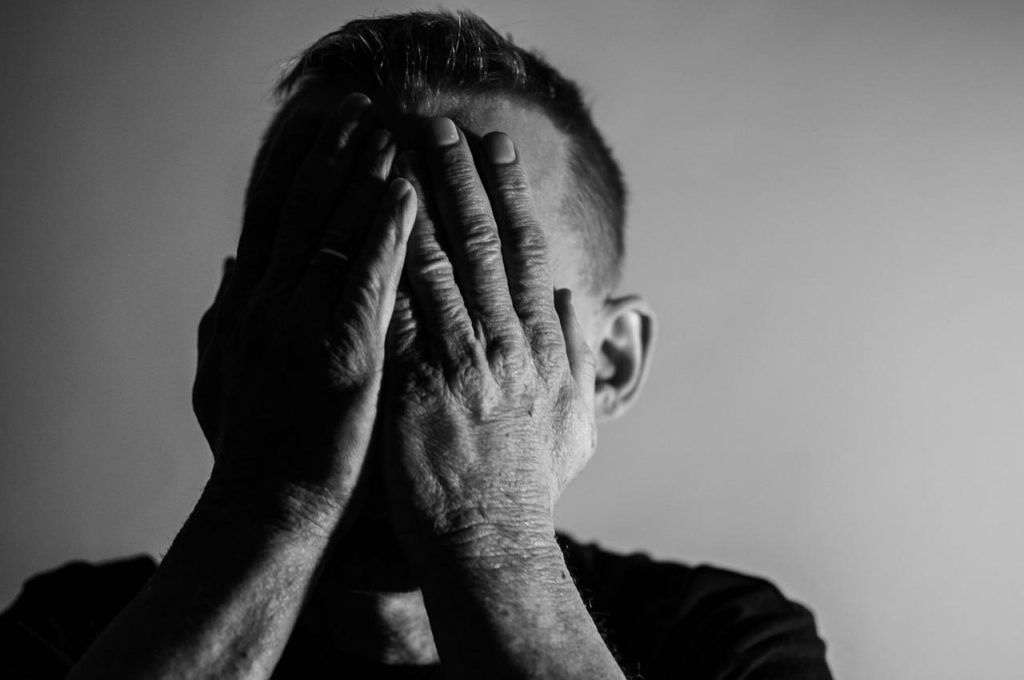Feeling worried or nervous about big changes, uncertain events, a meeting with the boss, and things that are important to you is normal. As human beings, we are designed to have responses to things that matter or could affect our life and choices. However, for many, the nerves and worries go beyond the small moments and are more lasting or frequent. According to the Anxiety & Depression Association of America (ADAA), anxiety disorders are the most common mental illness diagnosed in the United States. Around 40 million people, or 18% of the population, are reported as struggling with anxiety disorders.
Anxiety
Doctors do not know for sure exactly why some people struggle with anxiety and others do not. They believe many factors can play into this, such as genetics, personality, traumatic events, coping methods, and underlying physical health issues.
How Do You Know if it’s Anxiety Disorder?
Not everyone suffering from an anxiety disorder experiences the same symptoms. Below are the most common:
- Increased heart rate
- A sense of tiredness and weakness
- Irritability, nervousness
- Trouble relaxing or sleeping
- Stomach issues such as diarrhea, constipation, gas, or cramping
- Feeling panicky, constantly worried, on edge
- Sweating
- Shaking/trembling
- Hard time concentrating or focusing
- Difficulty with breathing- breathing too rapidly, or unable to take deep breaths
- Clenching your jaw/teeth
- Muscle tightness or tension
- Chest pain
- Emotional symptoms- feeling sadness, depressed, lonely, low self-worth, numb or explosive in feelings and reactions, guilt
What is a Panic Attack?
A panic attack is an anxiety disorder that can accompany generalized anxiety. It is diagnosed by the sudden and intense onset of 4 or more of the following emotional and physical symptoms:
- Heart palpitations and racing
- Shaking, trembling
- Sweating
- Chest tightness or pains
- Hot or cold body sensations
- Trouble breathing- shortness of breath or hyperventilating
- Dizziness or faintness
- Sensation of choking
- Nausea, stomach issues
- Tingling sensations in your limbs
- Detached feelings
- Fear that you are “going crazy” during the onset
- Intense panic of the feeling of losing control
- Feeling like you are dying
Find some tips on panic attack management here and here.
Next Steps
- If you feel like anxiety is interfering with you living your life, you should see your primary care doctor or psychiatrist. They can help come up with a treatment plan, or determine if you’ll need to be referred to another type of physician.
- Don’t fall victim to the stigma- seek support. Medications to help manage symptoms can be extremely helpful, but having a support group, counselor or therapist, teletherapy, etc, can be key for many suffering with anxiety disorders. With the right counselor or treatment program, a large percentage of people see their anxiety symptoms and panic attacks decrease over time.
- Utilize veteran resources for anxiety and mental health. Visit the VA Mental Health page here. Make the Connection helps connect veterans suffering from an anxiety or mental health issue here.
Lifestyle Changes
While medications and therapy treatment are often successful in managing anxiety symptoms and severity, there are lifestyle changes and tricks you can also try to help. (Remember that while these suggestions may be helpful, they aren’t usually enough on their own for most people. Think of these tips as the icing on the cake. The “cake” is treatment, counseling, medication, support, etc.)
- Get adequate sleep. This can be hard for those who have trouble sleeping due to anxiety, but sleeplessness contributes to increasing symptoms and severity of anxiety. Here are some tips for getting bedtime on track.
- Reduce caffeine intake, alcohol consumption, and tobacco use.
- Try to incorporate at least a cup a day of a calming tea. Many find this especially helpful as part of their bedtime routine. Peppermint, lavender, chamomile, valerian root and kava are some of the better known tea ingredients for helping reduce anxiety symptoms and promoting a sense of calm. There are more suggestions here.
- Enjoy outside time. Being outside in the sun or natural light and surrounded by nature if possible, is a grounding experience for most people, including those who struggle with anxiety disorders. Being fully aware of the scents, sights and physical sensations of grass, trees, flowers, and in nature can help with mindfulness and calming.
- Try a new relaxation technique. Yoga, meditation, praying, journaling, and mindfulness exercises can be helpful if practiced regularly.
- Eat a balanced and healthy diet. Cut back on processed, fried, sugary and low nutrient foods and beverages. Increase vegetable and fruit consumption, whole grains, and water intake.
- Be active and social. Staying isolated is known to trigger anxiety and make symptoms worse over time. If you don’t have a friend nearby, try to find a support group or hobby group you can join.
- Access more Web-MD tips here.

Connect Now
Mental health is hard for a lot of veterans to talk about. There is NO SHAME in struggling. Be your own advocate and seek support or treatment as soon as you can. Connection is key.
Work with a member of our team and determine if you are receiving the maximum ratings, benefits, and compensation you have earned and deserve. Use the button below for more information and a free consultation. If you aren’t eligible for our services, we will suggest other resources that can help!
Click Here for Info on Your Free Consultation





